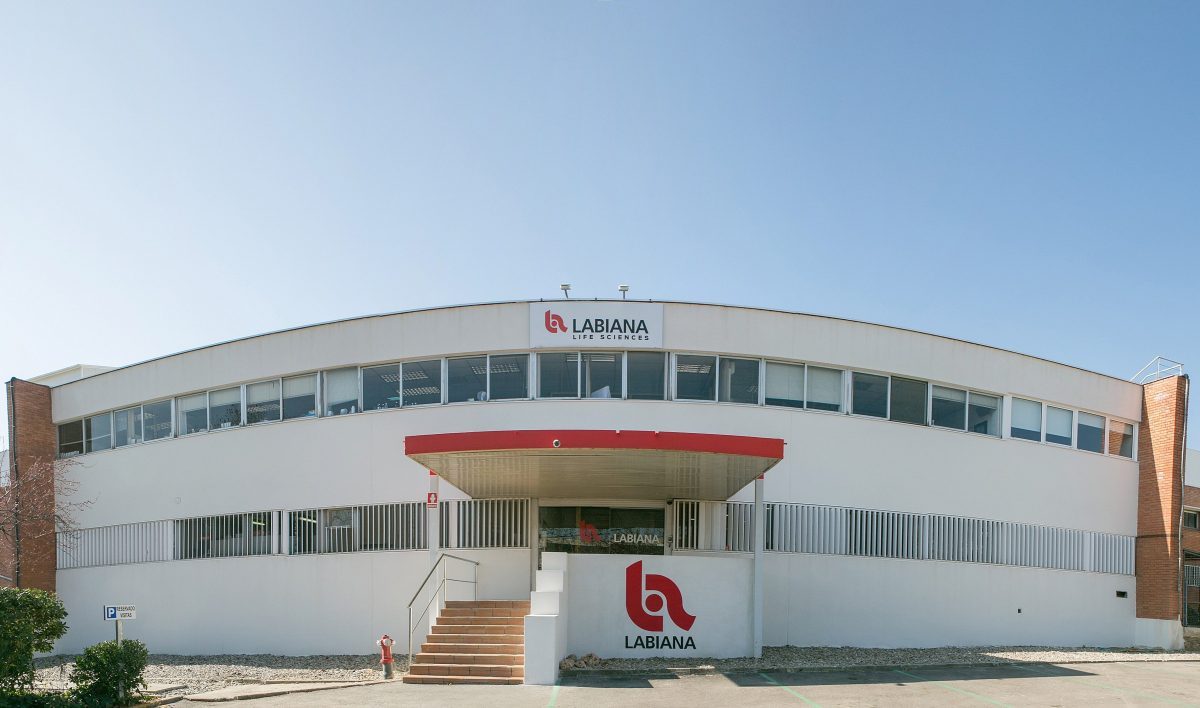International companies operating in the animal husbandry sector see us as a reliable partner with powerful know-how. The advantage of having EU-GMP manufacturing license, as well as several national GMP licenses from other countries, brings added value both inside and outside the EU .
For September issue of Diplomacy&Commerce magazine, we spoke with Manuel Ramos Ortega, CEO of Labiana about the acquisition of Veterinarski zavod Subotica and entering to the markets of Eastern Europe. “The acquisition of Veterinarski zavod Subotica was not only a good opportunity to expand to the Eastern European markets, but also to expand to other countries around the world with a wider range of products and larger production capacities”, pointed out Mr. Ortega.

Where is Labiana in terms of business opportunities in animal health market niches on a global scale?
Labiana was founded more than 60 years ago as a company dedicated to animal health and, over the years, it has expanded its activities and reinforced its position. A few years ago, Labiana was best known for contract manufacturing, being a manufacturer for some of the most important multinational companies in the sector. These companies considered, and still consider Labiana to be a quality supplier. Over the past decade, thanks to the vision of its management team, Labiana has consolidated its own product portfolio and taken a leap into export markets worldwide. Nowadays, Labiana has its own brand distributors in many countries in Europe, the AEMEA region, Asia and Latin America, and the company continues to invest into new markets.
Labiana is becoming increasingly synonymous with quality and reliability. International companies operating in the animal husbandry sector see us as a reliable partner with powerful know-how the advantage of having EU-GMP manufacturing license, as well as several national GMP licenses from other countries, brings added value both inside and outside the EU.
What is your value proposition?
Our value proposition is based on innovation, quality and efficiency of animal health products.
We are a 360º partner that offers third-party manufacturing services for both pharmacological and biological products, distribution of our own nutritional, pharmacological and biological products for livestock and animals, development of formulations (galenic development, galenic stability and laboratory series), analytical development (methods, validations and stability studies) and support in the regulatory sector, including dossier changes, DMF transfers, and molecule in & out licenses.
How does the acquisition of Subotica fit into Labiana portfolio?
The acquisition of Veterinarski zavod Subotica has enabled us to add value to our commercial offer and made us a world leader in the animal health sector.
The greatest novelty is that we have included not only new pharmaceutical formulas, but, above all, new biological products in our portfolio. Nowadays, vaccines are essential and they have become a major asset in our plans for further growth. Vaccines are one of the health measures that have been, and continue to be, the most beneficial for both humans and animals.
Given that the Subotica laboratory has the most extensive and comprehensive systems intended for the Serbian market and exports to countries of the European Union and Russia, how can the merger with Labiana contribute to achieving better results, both nationally and internationally?
With more than 60 years of experience in the European Union and other parts of the world, Labiana can make a significant contribution. Working side-by-side with the professionals at the Veterinarski zavod Subotica, we will improve organisational efficiency, introduce and share our process systems, as well as quality control and development systems. All this to achieve a common goal – to become a global leader in the animal health sector market niches.
Why did Labiana decide to enter the markets of Eastern Europe?
The acquisition of Veterinarski zavod Subotica was not only a good opportunity to expand to the Eastern European markets, but also to expand to other countries around the world with a wider range of products and larger production capacities. Some Eastern European countries were not available to Labiana prior to this acquisition.
The fact that we have a company in Serbia, primarily in Subotica, a city located in the heart of Eastern Europe, enables us to be close to all markets that share the Slavic culture. In addition, this is a great opportunity for Labiana to meet the experts who already work at the Veterinarski zavod Subotica in order to join forces and create new business opportunities.
In what ways do the acquisitions of European companies, such as the Turkish acquisition, complement your portfolio?
The Turkish acquisition is also part of Labiana’s growth and its competitiveness plans. Just as Serbia guarantees us an unbeatable market position in Eastern Europe, the acquisition of Zoleant Pharmaceuticals International based in Turkey enables us to have another company that will help us reach all Middle Eastern countries, which currently constitute a large market share in our exports.
In addition, other attractive elements were the portfolio of Zoleant Pharmaceuticals International, which includes a wide range of products for both livestock and small animals, as well as a strong network of contacts and distributors in the AEMEA region. Thanks to both acquisitions, we currently have a portfolio of almost 200 products between the three companies.

What are the potential innovations in your company and how can they contribute to the field of animal husbandry and health?
Labiana is one of the few laboratories in Spain and Europe that manufactures drugs for both human and animal health. We are very proud to have a team of experts and professionals from both scientific fields (pharmacists, veterinarians, biologists, biotechnologists, chemical engineers, etc.) engaged in R&D projects in search of new drugs, who can offer all kinds of regulatory solutions and are able to verify the feasibility of development and production of a particular product.
Since the outbreak of Covid-19, has there been greater interest in vaccines from the perspective of health and market opportunities?
Yes, due to the COVID-19 pandemic, vaccination has been gaining momentum worldwide. The pandemic has triggered a global health crisis, which has clearly shown the need and importance of having mechanisms to deal with these types of pandemics, which are becoming more frequent. Taking into account that there are currently numerous zoonoses (diseases that are transmitted from animals to humans) and that, according to the most prominent hypotheses, COVID-19 is also a zoonosis, control of zoonotic pathogens of an animal origin is in many cases the most efficient and cost-effective way to protect humans.
Another very important factor in the domain of public health is the strict monitoring of vaccination programs in the veterinary field. Nowadays, vaccines are essential and they have become a major asset in our plans for future growth through the prevention of these diseases.
What is the role of human capital and what policies are being developed to empower your employees and improve their performance?
Human capital is our key to success. Our strategy is based on attracting talented people and getting them to stay through personal and professional development, and we are very satisfied when employees identify with the corporate values and principles of our company, and are proud to be a part of it. At the level of policies that we are developing, they are mainly focused on both concrete permanent training for specific positions and more general training in terms of quality, occupational health and safety, standards, data protection, equality, etc.
Our programs are flexible, allowing staff to reconcile their personal and professional lives. Furthermore, we offer a voluntary health insurance program to our employees, as well as an incentive program, and we favour flexible working conditions, which is reflected in high staff loyalty.